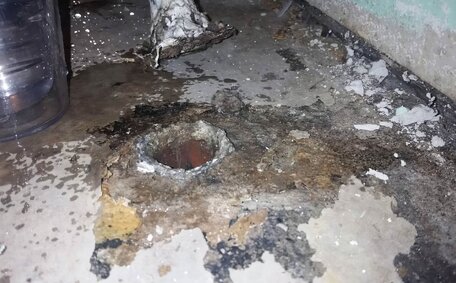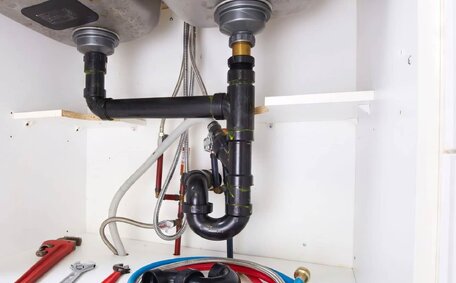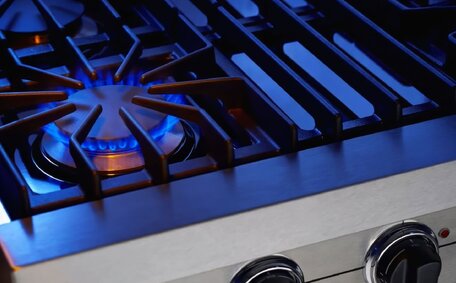Introduction to Pipe Relining
Pipe relining is an advanced method for fixing damaged pipes, offering a non-invasive solution to address plumbing issues. Specialists have found trenchless pipe relining to be highly effective, minimising disruption and allowing quick resumption of pipe use without excavation.
Pipe relining is beneficial for both landlords and tenants in rental properties. Instead of major re-piping projects that require vacating the property, pipe relining allows tenants to stay in place while repairs are completed. This process is typically completed within a day, bypassing the need for trenches or mess from construction.
Pipe relining outperforms traditional dig-and-replace methods by being quicker, cleaner, and more economical. At Bankstown Plumbing, our team members addresses residential pipe issues with seasoned expertise—providing pipe relining service across both single dwellings and multi-unit properties.
When it comes to tenancy rights and obligations, damaged pipes and repairs can sometimes cause confusion. This article offers guidance on who is responsible for pipe relining in Sydney properties, as defined by rental agreements.
Tenant Rights and Responsibilities
As a tenant renting a property, you have certain rights and responsibilities when it comes to plumbing and pipe repairs under residential tenancy laws.
Key Tenant Rights
- To inhabit a property that is in a suitable state of upkeep and neatness, with drain pipe systems functioning correctly
- To be responsible for repairs needed to maintain the property unless a blocked drain resulted from the tenant’s intentional or negligent actions
- To privacy and quiet enjoyment of the rental property
Key Tenant Responsibilities
- To report any damage or plumbing issues to the landlord/agent as soon as practicable
- To not cause wilful damage to any part of the property, including plumbing fixtures and pipework
- To cover repair costs when tenant-caused damage is confirmed by the landlord, ensuring fair allocation of responsibility
- To enable access for necessary repairs and permit tradespeople entry as required
When it comes to pipe relining specifically, as a no-dig repair method, tenants are generally not required to vacate the property during the short works. Any repair costs would depend on the nature of damage caused and the obligations outlined in your tenancy agreement.
Open communication is essential - tenants are encouraged to inform your landlord of any issues around your pipes and provide access to prevent problem escalation. Pipe relining offers an efficient avenue to fix your drains swiftly and in a cost-effective manner when compared to total pipe replacement, making it a preferred choice for the property owner.
When Tenants Can Request Pipe Relining
As a tenant, there are certain situations where you may request pipe relining instead of full pipe replacement:
- If there was an incident involving a blocked or compromised water pipe under the structure causing sewerage to overflow or create water flow issues
- When addressing burst water pipes as a result of standard wear tear over time
- For preventative maintenance, which can involve lining old but not yet damaged cast iron pipes, to extend their usable life
To get your plumbing issues promptly resolved, tenants should notify their property manager or call us to engage your local plumber at the earliest sign of trouble in the property. Pipe relining presents a repair option without need for the invasiveness of re-piping an entire property.
It is crucial to manage necessary pipe repairs via the proper channels and consult your tenancy agreement. Unless pipe damage was caused intentionally by the tenant, associated repair costs are typically deemed the landlord’s responsibility.
Maintaining transparent communication about any plumbing issues to ensure your landlord’s awareness, especially concerning drain pipe relining and sewer drains, and being cooperative with repair access is crucial. This is why we encourage early pipe relining action in your home before significant pipe failure or blockages happen.
Landlord Obligations for Pipe Maintenance
As a landlord, you have clear responsibilities when it comes to maintaining the plumbing system in a rental property.
The Residential Tenancies Act and fair trading regulations mandate that landlords maintain functional sewer and stormwater systems. Landlords are responsible for maintaining sewer and stormwater pipes and addressing issues such as tree root invasion, unless tenant responsibility is established.
- Clearing blocked drains, including blocked toilets and kitchen sink blockages, and addressing clogged drains or sewer lines
- Repairing leaks
- Repairing burst or broken pipes and handling corroded pipes
- Ensuring hot water system flow and consistent water pressure
In many cases, a pipe relining solution proves to be less invasive and disruptive than complete pipe replacement. Relining consists of installing a new pipe within the former, using an epoxy resin lining to seal damage and prevent leaks or blockages in underground pipes.
For rental properties, pipe relining can effectively address the following concerns:
- A commercial pipe concern sees minimal disturbance for the commercial property plumbing issues of your business tenants - no need to vacate
- Notably reduces time compared to traditional pipe replacement
- Restores water flow and drainage, allowing pipes to operate optimally without additional rent costs
- Results in cost savings relative to full pipe replacement
As a landlord, staying on top of maintenance and promptly addressing any old pipe concerns by employing trusted plumbing professionals is key. If tenants report issues, it’s prudent to have your pipe relining assessed promptly. Pipe relining can effectively address and fix problem situations before a significant system failure occurs.
Safety Issues with Old Pipes
Old and deteriorating pipes in a rental property can present safety hazards for tenants, making them responsible for any repairs to issues like pipe corrosion, cracks or blockages which mean there is an increased risk of leaks, floods or falling debris.
If pipes are very old, they may contain harmful materials like lead or asbestos. Landlords can mitigate health risks by attending to any compromised pipes.
Replacing old pipework tends to be invasive and expensive. Pipe relining offers the ideal solution for your property, presenting a safer and more cost-efficient option for damage repair, securing old pipes from within. With epoxy resin’s capability to seal cracks and restore structural integrity, tenants can safely remain on the premises.
That’s precisely why we advocate for swift action; left unchecked, old pipe issues will only escalate over time. Water damage, mould or even electrical fires could occur. That’s why we at Bankstown Plumbing champion diligent preventative pipe maintenance in rental properties.
Tenants have a right to feel secure in their space, and it’s also good practice for tenants to realise pipe assessments and relining can mitigate risks from deteriorating plumbing before significant issues emerge. Restored pipes prevent potential property damage and associated costs for landlords.
Improving Rental Properties with Pipe Relining
Pipe relining can significantly bolster the state of rental properties for both landlords and tenants, providing peace of mind to property owners. Pipe relining, as a contemporary and non-invasive repair method, delivers several improvements:
- Boosts property value and saleability by restoring functionality, preventing leaks, and dodging demolition debris associated with full replacement
- Improved tenant satisfaction - Tenants experience less disruption without vacating for repairs, and relined pipes improve water flow
- Offers long-term cost savings as relined pipes have extended lifespans and preclude the need for frequent replacements
- Safer and more sustainable - Pipe relining uses no-dig methods reducing environmental impact, and stabilises old pipework avoiding fall or collapse hazards
Pipe relining satisfies key requirements for rental properties, providing high-quality results without necessitating destructive work. Tenants benefit from improved plumbing and enhanced liveability as new pipes are smoothly integrated with existing systems. And asset owners benefit from upgraded, stable piping that ensures no money will end up thrown down drain for decades to come.
Compared to extensive demolition required for traditional pipe replacement, pipe relining provides a solution your property needs while tenants comfortably remain on-site. This trenchless technique is the modern standard in pipe repair and maintenance.
How Pipe Relining Affects Tenants
Pipe relining solutions often have minimal impact for tenants compared to traditional pipe replacement methods. Key advantages include:
- There’s no requirement for tenants to leave the property; relining is typically completed in one day
- Access to water and plumbing amenities remains largely unaffected
- No exposure to construction mess or noise
- Improved water flow and drainage after old pipes are restored
The pipe relining process involves staging resin and equipment where pipe access is available, typically outside the unit before accessing pipework from a small internal point, often a single inspection hatch.
Your plumber will isolate and test the water flow in relevant sections of your sewer line before undertaking relining vs pipe replacement, applying specialised lining resin under pressure. This method inserts a new pipe within the old one, sealing any damage, restoring flow, and reinforcing the sewer pipe.
Tenants may experience temporary water stoppages - up to 8 hours for multi-unit complexes - as sections undergo testing and sealing. Advanced notice is provided about scheduled interruptions, as your plumber does pipe assessments and relining preparations.
In summary, pipe relining allows pipes to be restored without digging trenches or removing walls/floors within rental units. This ensures that tenants experience minimal disturbance during the pipe relining process, compared to the disruption of traditional re-piping.
Pipe Relining vs Traditional Repairs
Pipe relining provides several clear advantages compared to traditional pipe replacement methods that involve extensive demolition and property disruption:
Minimal Disturbance
Modern relining techniques eliminate the need for excavation of floors, walls, or landscaping. This means rental tenants do not need to vacate the property for the 1 day repair process on PVC pipe. Access for repairs is minimal, requiring small openings to the pipework only.
Superior Durability & Lifespan
The seamless epoxy resin that we use strengthens our pipe relining services, creating a barrier stronger than new piping. The life expectancy of relined pipes often transcends 50 years, making this a wise long-term investment.
Significant Cost Savings
Typically 50-70% less expensive than traditional repairs, pipe relining avoids the considerable costs of installing new pipes and subsequent structural repairs. As a preventive measure, pipe relining also prevents property damage due to leaks or bursts over time.
Enhanced Flow Capacity
Pipe relining ensures unobstructed water flow by smoothing the interior pipe wall and clearing blockages. Pipe relining promotes continuous water flow without the limescale risks associated with traditional pipe replacement, which often requires new pipes.
Non-Damaging Methods
Pipe relining methods cause minimal damage to walls, floors, and landscaping as they do not require digging. Re-piping often requires extensive destructive excavation work and major restoration efforts after.
In rental properties, pipe relining safeguards functionality and property value in an orderly fashion, ensuring tenant comfort with no need for relocation. Pipe relining is a faster, more durable, and cost-effective alternative to traditional pipe replacement.






